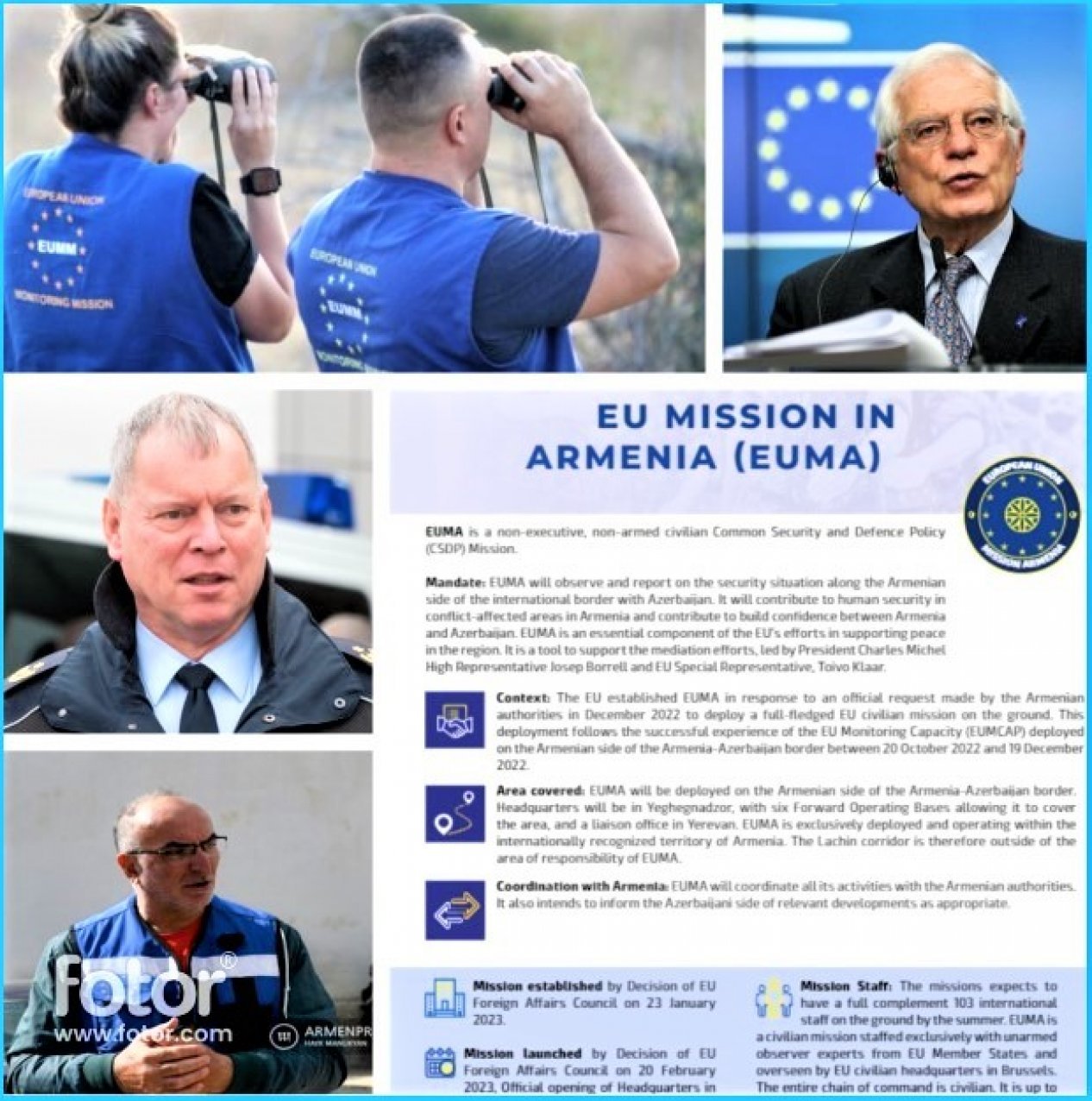
As is known, the civilian mission of the European Union within the Common Security and Defense Policy (CSDP) has been operating in Armenia since February 20, 2023. The purpose of the mission is to contribute to peace and stability in the border areas of Armenia and Azerbaijan, as well as to support the creation of trust between the two countries in the process of delimitation and demarcation.
As a brief reminder, the arrival of the EU mission in the region is completely contrary to the principles of the Brussels peace talks and should be characterized as a de facto unilateral action. So, according to the agreement reached in Prague in October 2022 between the leaders of Armenia, Azerbaijan, the Council of the European Union and France, for the purpose of monitoring and analyzing the situation and presenting reports on the situation on the ground, on October 20, the EU agreed to deploy the monitoring mission. The mission was planned for two months and the period was completed on December 19. Later, it was decided to send such a mission without the official permission of Baku.
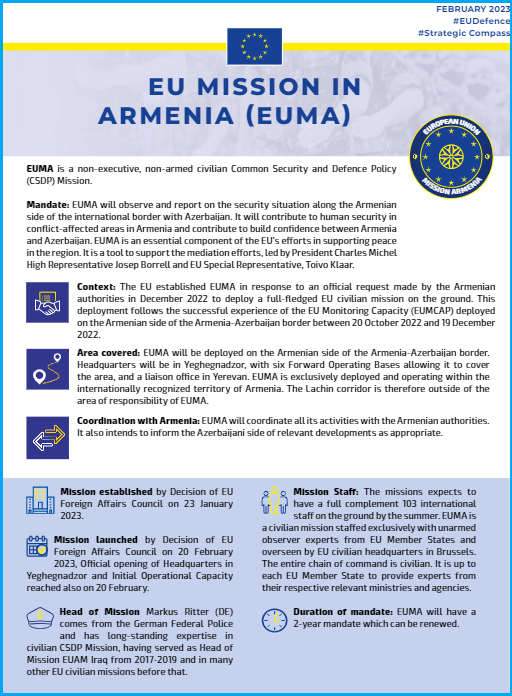
Commenting on this issue, President of Azerbaijan Ilham Aliyev touched upon the details of the Prague meeting in an interview with local TV channels on January 10 and said that one of the proposals was to send a mission to the Azerbaijani side. “It was also discussed and agreed at the time that this mission would be short-term, consist of 40 people and last only two months. I agreed to with that. But then, for some reason, this conversation, that is, this agreement, was disrupted. This, of course, was a very disappointing moment. Because we are serious people. There are serious conversations going on here. If we agree to something, even verbally, we must follow through on it. How can it be the case? After a while, a high-ranking official of the European Union said that the mission would be extended. After that, the French foreign minister said that we would extend the mission. Of course, we immediately took action and demanded an explanation. What is this? How will you extend it? After all, you agreed to send this mission with us. Why? Because it will be near our border. How can this fail to be agreed with us? After that, they officially stopped the operation of the mission on December 19. But on December 20, they sent a new mission. This is just manipulation. Representatives of the new mission are in Armenia now, where they are holding meetings with high-ranking officials. According to the information we have, they will be sent there again in February with a large delegation. Again, without our agreement.”
The Ministry of Foreign Affairs of Azerbaijan also commented on the issue and said that such an activity is in serious contradiction with the agreements reached in Prague and will affect the credibility and transparency of the EU, as well as general trust. Quote: “As a matter of fact, the presence of EU monitoring capacity in Armenia coincided with increased attempts by Armenia to derail the normalization process in all its three tracks, including torpedoing the trilateral meeting of the leaders of Azerbaijan, Armenia and the EU Council, with groundless conditioning. As such, initial expectations that EU mission would contribute to taking normalization agenda forward were undermined.”
Apparently, the mission was organized in accordance with the wishes and scenario of Paris, considered the political center of Europe, which wants to implement its insidious plans in the region, not the peace initiatives of Azerbaijan and the normalization process in the region, completely ignoring the Brussels peace format. At the initiative of France, the Council of the EU sent a civilian and paramilitary mission consisting of 100 people, including 50 observers, to the border regions without taking into account the interests of Azerbaijan and without coordination with Baku. (Link)
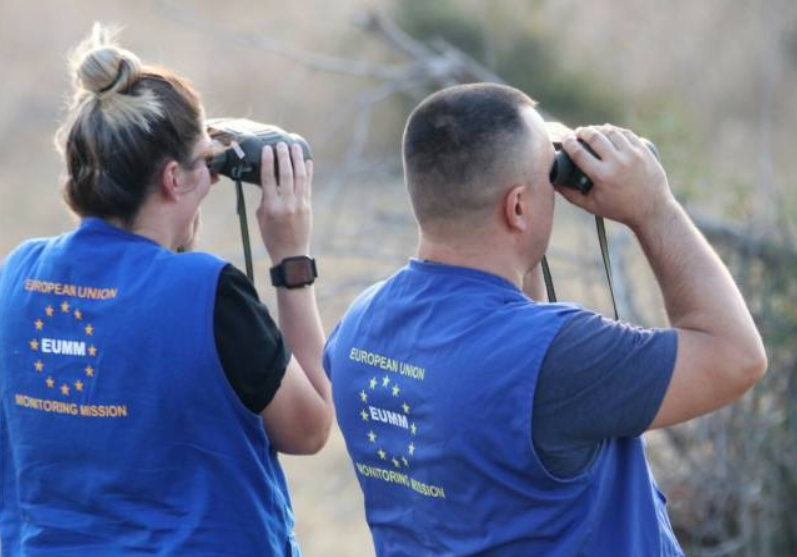
The fact is that half of the mission is actually made up of military personnel. There is no doubt that the mission is a paramilitary French contingent, considering that the EU mission includes not only civilian experts, but also military personnel belonging to the French gendarmerie and the German military police.
From the first days of its arrival, the EU mission, in accordance with the instructions from Paris, began to present Armenia to the international community as an "attacked" country, to create the image of a culprit and supposedly protect from the expected Azerbaijan’s aggressions. We can see this from the pro-Armenian stance of several observers who joined the EU mission over the past month. The style and content of the statements made by those persons to the media, and the style of presentation, do not stand out from the rhetoric of Armenian lies and deceit. For example, the deputy mission leader for Martuni (district in Armenia-ed.) of the mission, Christos Hadjitheodoulou, from Cyprus, “points to the distance from the entrance to Sotk village to the border with Azerbaijan – 8 kilometers – by the internationally recognized borders- however the Azerbaijani military have pushed further into territory of Armenia 3 or sometimes 4 kilometers deep.”
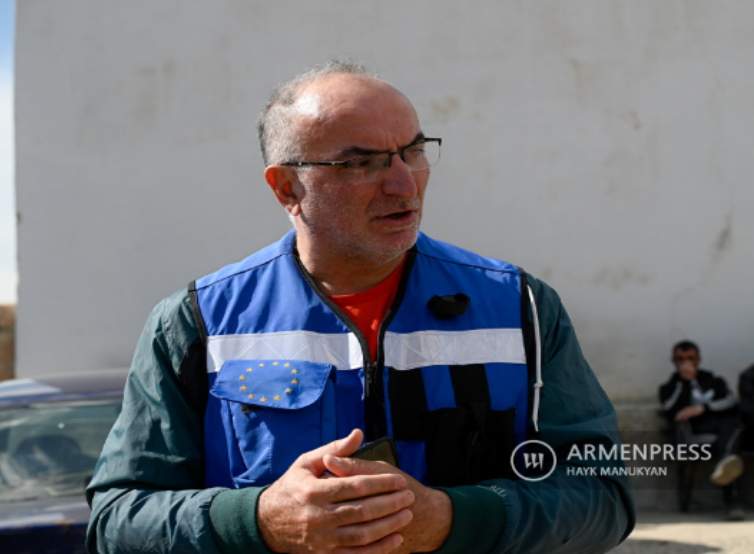
Quote: “But even here in Sotk, people have told us several times that the shootings happen especially at nights. The people tell us that they are a bit scared, but now, after our arrival they feel much safer. They are saying that the Azerbaijani shootings are gradually decreasing. We receive information on shootings, and sometimes we hear the shootings ourselves. And of course, we prepare reports every day and send it to Brussels through our headquarters in Yeghegnadzor.” source
This is an open accusation, a slander against the state of Azerbaijan, a provocation directed against the national interest of the country. There are no facts or evidence that the Azerbaijani army opened fire on peaceful Armenian villages. If there is such an event, why aren’t bullet marks collected and presented? Such a lie coming from the mouth of one of the members of the EU mission is nothing more than an instrument of dirty play. Slanderous "information" collected against Azerbaijan is sent from Yeghegnadzor to Brussels.
However, after the deployment of the EU mission in Armenia, it was the other side that attempted attacks and provocations, and the armed groups of the terrorist country, encouraged by the "service" of the European patrol group, began to simultaneously shell the territories of Azerbaijan. On February 21-22, positions of the Azerbaijani army located in the territory of Tovuz and Nakhchivan were fired upon 15 times. This continuous two-day provocation happened in front of the EU mission. (link)
It is interesting that the EU mission and its head, Markus Ritter, did not "see" these events that took place on the border near 1 km. Considering the fact that the EU mission has enough experienced and professional military personnel from the French gendarmerie and the German military police, as we emphasized above, it is not difficult to determine which and by whom the shot was fired, and the location of the shooters. In such a case, ignoring these provocations of Armenian subversive groups called into question the fairness and objectivity of the mission team that came to "contribute to peace and stability" from the first days. Instead of giving an honest and fair assessment of these actions of the Armenian armed forces, the head of the civilian mission, former head of the Stuttgart City Police Department since 2020, 61-year-old Markus Ritter showed a hypocritical attitude.
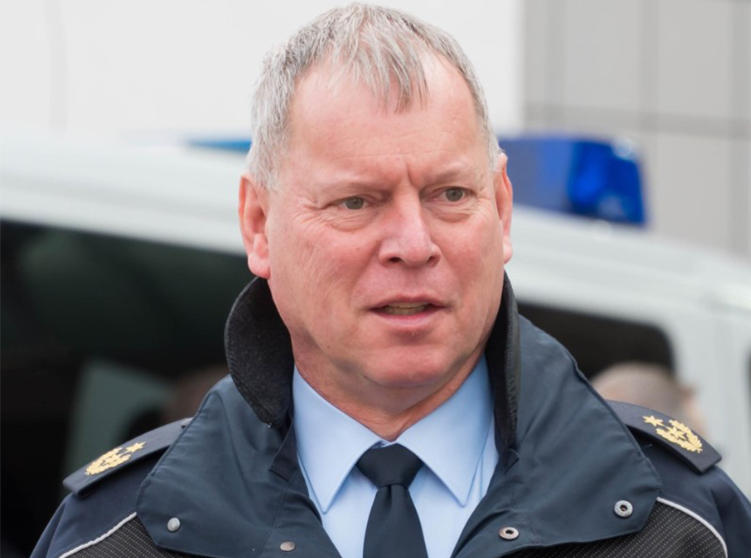
At the end of March, Ritter questioned the objectivity of the Azerbaijani army in an interview with the German media agency Deutsche Welle (DW). “If there is no Azerbaijani attack this spring, it can be said that the European Union (EU) Mission in Armenia has been successful,” he said.
This approach is inconsistent with the mission's mandate and powers. The head of the EU mission is trying to create an image of aggression about the Armed Forces of Azerbaijan with this fake news, creating the impression that Azerbaijan will fire Armenian villages, and it is precisely the mission "to protect Armenia from occupation" that is successfully operating in the region.
If Ritter and his associates set aside this unfair approach and deeply examine the clashes that took place on September 12, 2022 in the directions of Dashkasan, Kalbajar and Lachin of the Azerbaijan-Armenia state border, they will see that it is Armenia that tried to attack the positions in the border areas and cause provocations. It is a fact that Azerbaijan had over 50 martyrs last year due to large-scale provocations by Armenia. At that time, diversionary groups of the armed forces of Armenia carried out mine planting of the areas between the positions of the units of the Azerbaijan Army and the supply roads in different directions, using the mountainous terrain of the area and the existing valley gaps, some positions, shelters and support points in the territory of Dashkasan, Kalbajar and Lachin regions were shelled using various caliber weapons, including intensive fire from mortars. In order to prevent the provocation of the armed forces of Armenia and military threats against the territory and sovereignty of Azerbaijan, and to ensure the safety of the military personnel, including the civilian workers involved in infrastructure works in the territory of Kalbajar and Lachin regions, decisive response measures were taken by the units of the Azerbaijan Army deployed in this direction. source
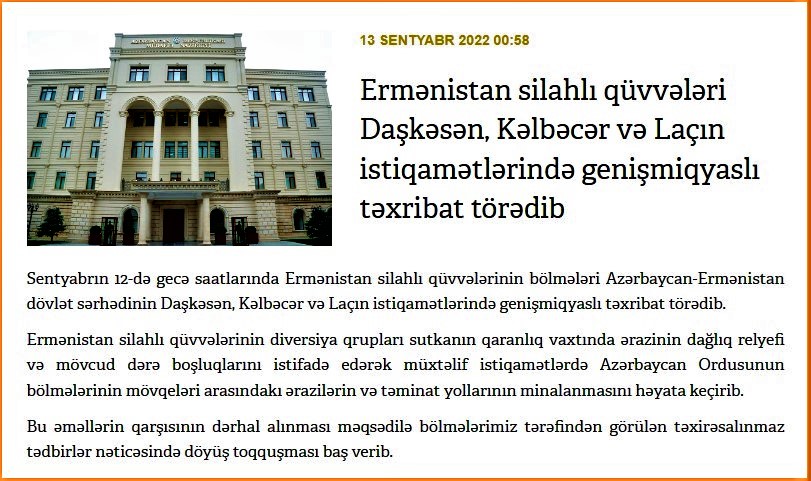
Azerbaijan has never had a claim on the territories of Armenia and has no desire or intention to attack.
For two years now, Baku has been asking the highest EU officials in Brussels to quickly complete the delimitation of territories, to sign a peace treaty, and to establish a normal neighborhood with the principle of mutual recognition of territorial integrity and non-interference in internal affairs.
The other side exhibits rhetoric that harms peace building. Instead of seeing this reality and taking initiative in the direction of peace and reconciliation, the EU mission is carrying out propaganda that encourages attacks and bloodshed in accordance with the provocative spirit of Armenians.
Therefore, to accuse Azerbaijan of invading the territory of the aggressor and aggressor country, casts doubt on the objectivity of the reports submitted to Brussels based on the monitoring conducted by Markus Ritter and other members of the civil mission.
Another surprising and regrettable fact is that the mission of the European Union, by turning a blind eye to the provocations committed by Armenia on the border with Azerbaijan, also encourages the next provocations of the separatists and encourages the emergence of new tensions. At the same time, it encourages new aggression and provocations by Armenian armed groups not only in the border zones, but also in Karabakh and East-Zangazur. This is also clear, because France and other EU powers, against the background of Russia-Ukraine war, unsatisfactory activity of Russian "peacekeepers", other geopolitical processes, increased provocations by members of the illegal Armenian armed group in the territories of Azerbaijan, where the Russian peacekeeping contingent is temporarily located, and tries to replace the Russians with EU peacekeepers. After the arrival of the EU mission to the region, it is no coincidence that Pashinyan openly demonstrated his anti-Russian position, incited sentiments against Russia in the Armenian community, disrupted peace negotiations and strengthened the tendency to call for revenge.
After the arrival of the EU mission to Armenia, it is possible that France and other players stand behind the refusal to fulfill the commitments assumed by Yerevan, continuous provocations to prolong the negotiation process as much as possible, and exhibiting aggressive revengeful behavior. The goal is to increase the tension in the region, to achieve the arrival of the EU to the region against the background of the inaction of the Russian peacekeepers. This can be felt from the hints of EU foreign policy commissioner Joseph Borrell in his statement some time ago. Calling the 100-person mission sent to Armenia "a new stage in the involvement of the EU in the situation in the South Caucasus", Borrell hopes that the European Union will come to the fore in managing the processes in the region. reference
However, the high commissioner forgets that Azerbaijan is the gateway to the South Caucasus, and losing Baku's trust is equivalent to losing the region.
Another conflicting picture is that Iran, which has faced a disastrous economic and social situation due to the heavy sanctions of the West, and calls the European Union "a den of evil and the devil", not only does not object to the arrival of the EU mission to the unity of its borders, but welcomes it as normal. Paruyr Hovhannisyan, deputy minister of foreign affairs of Armenia, stated that Iranian officials assured Yerevan that they are not worried about the placement of the EU mission in Armenia on the border, and the long-term operation of the mission does not pose a problem for Tehran. Quote: "Iran is not against the sending of observers from the EU and evaluates it positively." Reference
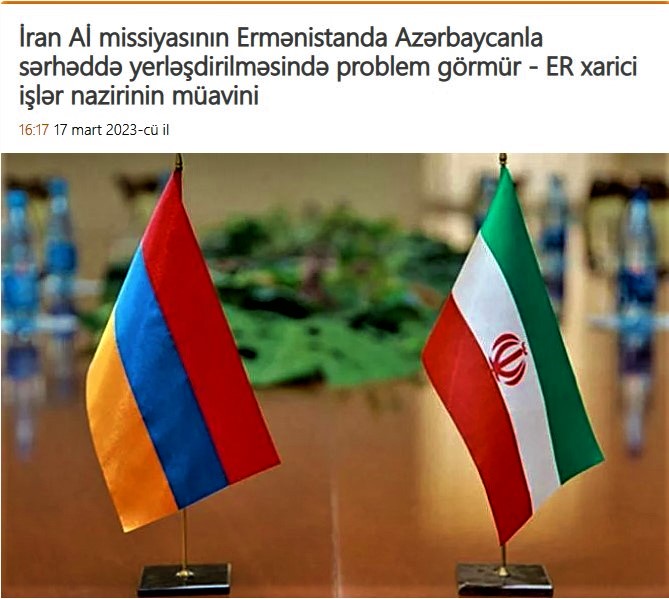
Iranian Ambassador to Armenia Abbas Badakhshan Zohouri also said that Iran is not against the placement of the EU's civilian mission on the border of Armenia and Azerbaijan. Quote " Other countries can bring their contribution in terms of ensuring security and peace in the region."
Azerbaijan has repeatedly stated that the appearance of the EU mission on the border with Azerbaijan will not only stabilize the situation in the region, but will make the situation even more tense. Especially when we take into account France's special interest and "activity" in this process, there is a fear of bloody clashes, not normalization. Because France is making various plans to place its military contingent in this area, it is trying to increase the tension so that the mission will be more "long-term". If we look at our recent history, we can see these similar features in the face of French imperialism, France's peacekeeping missions have always ignited conflicts in the various regions where they operate, facilitated the massacre of tens of thousands of innocent civilians, and was itself a direct participant.

It is enough to remember the activities of French missions in Africa. The genocides of Chad, Gabon, Senegal, Rwanda, Morocco, the killing of thousands of people in Côte d'Ivoire, the Central African Republic, Niger, Togo, Mali, the "Algerian genocide" and other terrible facts are traces of the French "peacekeeping mission". France killed more than 2.5 million people in the name of creating peace and stability in African countries. In Algeria alone, the French army killed 1.5 million people. reference
France, which planted more than 5 million landmines in Algeria, still does not provide mine maps, and civilians are still being killed. It is not surprising that we see the same handwriting in Azerbaijan. Having learned this "historical experience" of the French, Armenia has mined every inch of Azerbaijan's land and the "mine terror" is still ongoing.
Therefore, it should not be forgotten that the peacekeeping missions in which France is the mediator and actor bring only blood and disaster to the states.
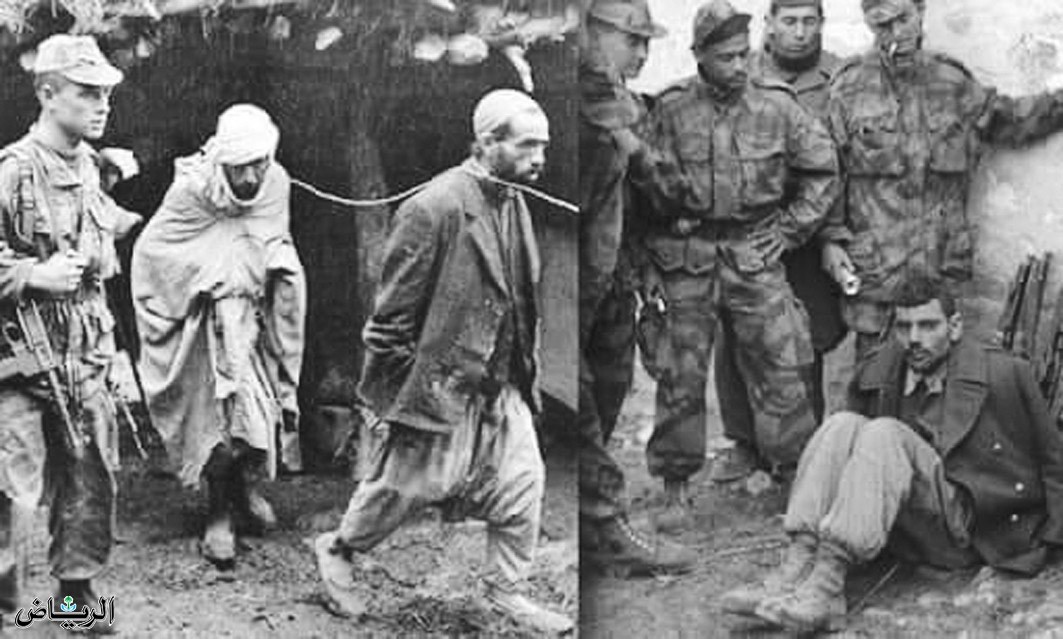
It goes without saying that Azerbaijan is more powerful today, and is able to resolutely prevent the realization of some insidious plan of France in the region.
First of all, Azerbaijan, the leading country of the South Caucasus, is known and accepted as a reliable partner in the world. It has established trust-based relations with the European Union and other international organizations.
At the same time, Azerbaijan is irreconcilable against all activities that are contrary to its national interests with its principled position and harm the general well-being and security in the region. In this regard, the pro-Armenian forces in the EU structures and France are losing their future credibility and prospects by trying to damage mutual cooperation and relations. The clear message given by the President of Azerbaijan in an interview to local television channels three months ago is enough to understand: if the EU serves other purposes than peace in the region, it will eventually suffer the fate of the Minsk Group. Quote: “Unfortunately, the other side sacrifices its own interests as a partner to France's disruptive activities, and makes decisions that will negatively affect relations with its main partner in the South Caucasus. With this, first of all, it undermines confidence. Once there was mistrust of the OSCE Minsk Group in the Azerbaijani society, and now the EU is busy shadowing the mediation efforts with its steps. Azerbaijan's position is clear and there is nothing to change here. Therefore, the parties who sincerely want to cooperate with Baku and really contribute to the process should amend their positions.”
In conclusion, it is safe to say that the intention of France, which is the main initiative country in bringing the EU civilian mission to the region, is not to ensure peace in the region, but to prolong the settlement of the signing of the peace agreement, to prolong the tension, and by this means Paris wants to extend its stay in the region. At the same time, the activity of the civilian mission of the European Union for a month and a half casts doubt on the fair and honest operation of this institution, undermines its trust and reputation in the South Caucasus.




















